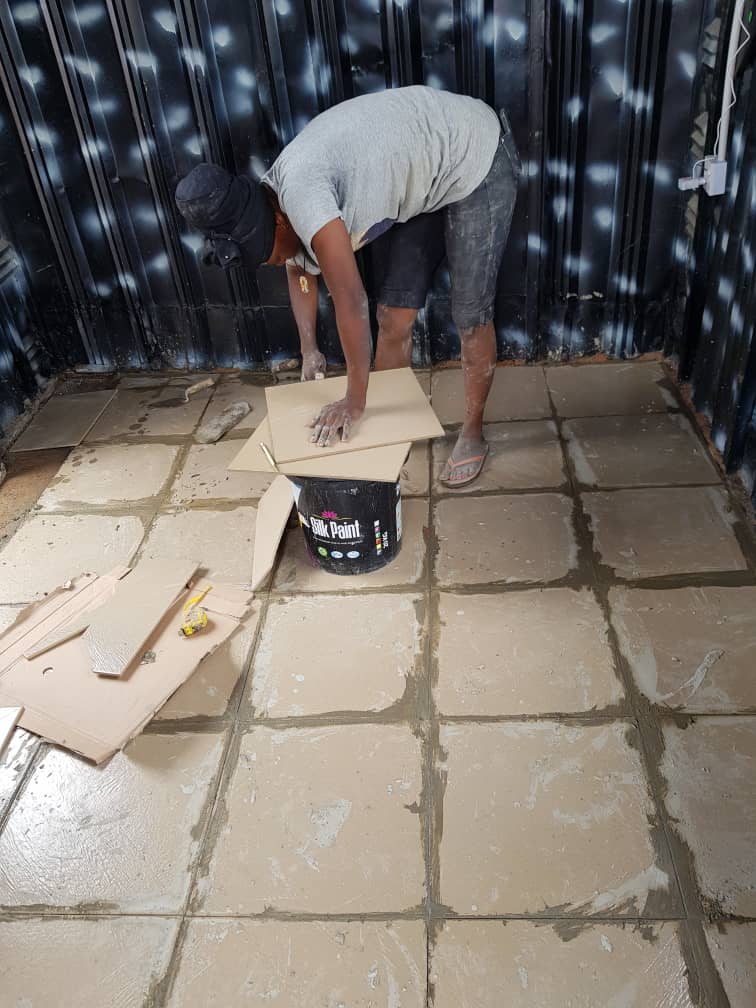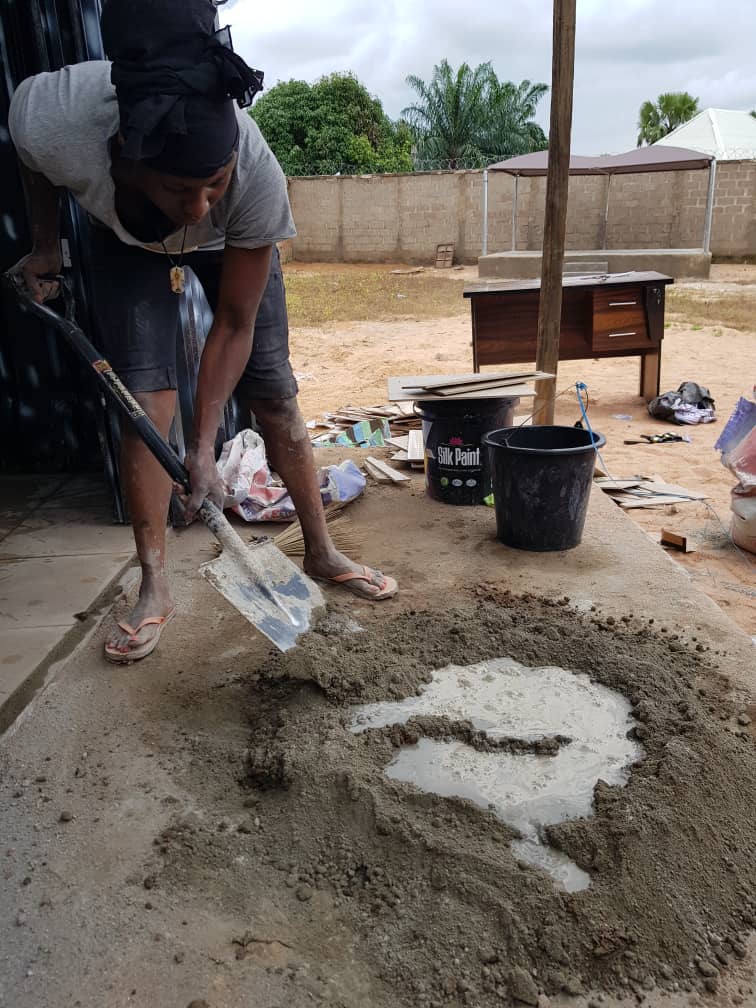As a young girl growing up in Sardauna, in Nigeria’s Taraba State, Amabel Eugene hoped to carve a career in journalism or civil engineering or even the Nigerian military. But life took a different turn.
Raised in impoverished circumstances, Eugene attended school while she roamed around construction sites after school hours, hawking moimoi to eke out a living. In April 2016, she visited one of the construction sites and found the workers fixing the tiles in one of the rooms. That was the first time Eugene had seen a tiler at work, and the beauty of the process charmed her, and she soon developed an interest in the job.
“I immediately expressed my interest in wanting to learn tiling to the person who was in charge at the place. He jokingly responded by saying, “If you are serious, I can teach you,” without knowing how serious I was. I asked him when I should start, and he still thought that I was joking. He said anytime I am ready, and I said that I would be there the following day,” Eugene said.
That evening, as Eugene trudged home, she decided that she would quit hawking moimoi to focus on tiling as a new business. Her mother soon gave her blessings upon hearing of Eugene’s plan. The following morning, Eugene arrived at the construction site with a resolve that would alter her life in the months to come.
Days of training bled into months, and Eugene soon learned the ropes. “During these three months, I was able to lay tiles on the wall. That is to tell you how determined I was,” she told Prime Progress.
When the tiling construction project in Gembu ended, Eugene became anxious about her next steps as the tilers, under whom she had apprenticed, were leaving for Abuja to take on another project.
“Surprisingly, my boss went to see my mother and discussed it with her. He told her that if she can trust him enough, she can allow me to follow him to Abuja to continue with the training,” Eugene shared.
Eugene’s mother acceded to letting her 29-year-old daughter travel with her foreign masters to Abuja. Considering that the tilers were mostly foreigners, Eugene explained that the decision to travel with them to Abuja was a great risk.
“The person leading the team hails from Togo. I have never been to Abuja before. But I followed them and participated in the project they carried out there.”
A life-changing opportunity
Yet in the months since then, Eugene has transformed into a skilled tile constructor with an steady stream of income to fund her education at Taraba State University, where she is currently studying.
“Being a tiler has made me self-dependent, self-disciplined, and more hardworking than I used to be. I have also learned a better way of dealing with people and handling situations because as a tiler, I have had the opportunity to travel to so many places in the country, and that has widened my horizons and aided my understanding ability,” she said.
Eugene has found fulfilment in fixing tiles, which she believes consolidates the legacy of her late father, who worked as a bricklayer.

Not giving up
Eugene admits that many of her friends didn’t approve of her work, especially seeing her hands soiled with concrete. But she cared less about their opinions. Her passion mattered more, she said. Eugene’s passion for her craft sees her cart sand and cement across different locations.
Yet Eugene maintains that blazing through a male-dominated profession doesn’t subtract from a woman’s beauty.
“Being a female tiler is sometimes challenging as many people tend to undermine your ability to deliver, given the fact that it is a masculine job that requires a lot of physical strength and experience. So I have dedicated myself to be the best in what I do, always finding a way of giving people the benefit of the doubt by being so confident in my ability to deliver and also being sincere with my clients.”
As a single mother, working as a tiler can be even more challenging at times, but Eugene struggles to balance her time between work and caring for her son.
Looking into the future, Eugene hopes to expand her business by accruing more machinery while also giving her son an ideal life.
Amabel Eugene, a young woman from Sardauna in Nigeria’s Taraba State, aspired to careers in journalism, civil engineering, or the Nigerian military, but life’s circumstances directed her towards tiling. Raised in poverty, Eugene supported herself by hawking moimoi and was captivated by the tiling process she observed at construction sites. She decided to learn tiling, and after three months of training, she mastered basic tiling skills.
When the project she was working on ended, her mentor invited her to continue training in Abuja, a significant risk given the team's foreign members. With her mother's consent, Eugene moved to Abuja. This opportunity transformed Eugene into a skilled tile constructor, providing her with a steady income, self-dependence, and funding for her education at Taraba State University. She believes that tiling has not only made her financially stable but also more disciplined and understanding.
Eugene faced criticism from friends and challenges as a woman in a male-dominated field but remained dedicated to her craft. As a single mother, balancing work and caregiving is difficult, but she hopes to expand her business and provide a better future for her son. Despite societal expectations, Eugene finds fulfillment in her work and maintains her commitment to excellence and sincerity with clients.






